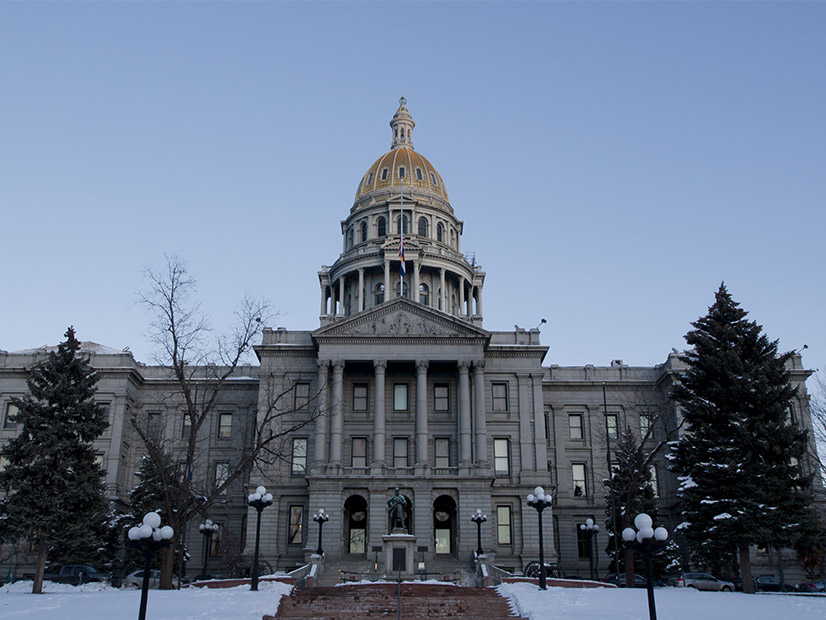Colorado’s legislative session ended last week with the passage of various climate bills now on their way to the governor’s desk.
After some debate, lawmakers passed three bills focused on electrification, air quality and environmental justice, which call on state agencies, including the Public Utilities Commission (PUC) and Air Quality Control Commission (AQCC), to monitor and aid utilities in the transition to net zero emissions.
SB21-246
This bill concerning building decarbonization and electrification would require the state’s utilities to create programs that encourage the use and purchase of electric appliances in both household and commercial applications. These would be voluntary programs that would not require the replacement of outdated equipment but would rather reduce costs for and encourage the purchase of their electric substitutes.
The PUC would “establish energy savings targets and approve plans under which investor-owned electric utilities will promote the use of energy-efficient electric equipment in place of less efficient fossil-fuel-based systems,” the bill states. The energy savings targets would ensure utilities maximize the potential GHG reductions from voluntary electrification.
When creating these programs, utilities also will have to consider disproportionately impacted communities. The bill states they must “include programs targeted to low-income households or disproportionately impacted communities, with at least 20% of the total beneficial electrification program funding targeted to programs that serve [these] communities.”
SB21-264
To reduce greenhouse gas emissions from “the built environment,” SB264 will require gas distribution utilities to file clean heat plans with the PUC and AQCC. The plans should demonstrate how each utility intends to achieve 4% GHG emissions reductions by 2025 and 22% by 2030 as compared to a 2015 baseline.
The “utility shall provide to the division an annual report of carbon dioxide emissions associated with customer end-uses and, separately, methane emissions associated with the utility’s distribution system,” the bill states.
In addition, SB264 calls on the Oil and Gas Conservation Commission to conduct a study “to evaluate the resources that would be needed to ensure the safe and effective regulation of injection wells used for sequestration of GHG.”
HB21-1266
Under threat of a veto, Colorado Democrats dropped controversial climate bill SB21-200 at the end of the legislative session, instead pushing through HB21-1266, which many considered a compromise. (See New Report Could Support Adoption of Colo. SB200.) While SB200 primarily focused on statewide GHG emissions targets and only touched on disproportionately impacted communities, HB1266 focuses on outreach to these communities.
While the bill still enforces emissions reductions in the electric, oil and gas and industrial sectors, it does not mandate specific targets like its predecessor.
The Environmental Justice Act, as it has been named, would create an environmental justice action task force in the Department of Public Health and Environment. The task force would “propose recommendations to the general assembly regarding practical means of addressing environmental justice inequities.” A report including the task force’s final recommendations would be due in November 2022.
The bill would also require the AQCC to find ways to engage with these disproportionately impacted communities. The commission would have to create “new ways to gather input from communities across the state, using multiple languages and multiple formats, and transparently sharing information about adverse effects resulting from its proposed actions,” the bill states.



